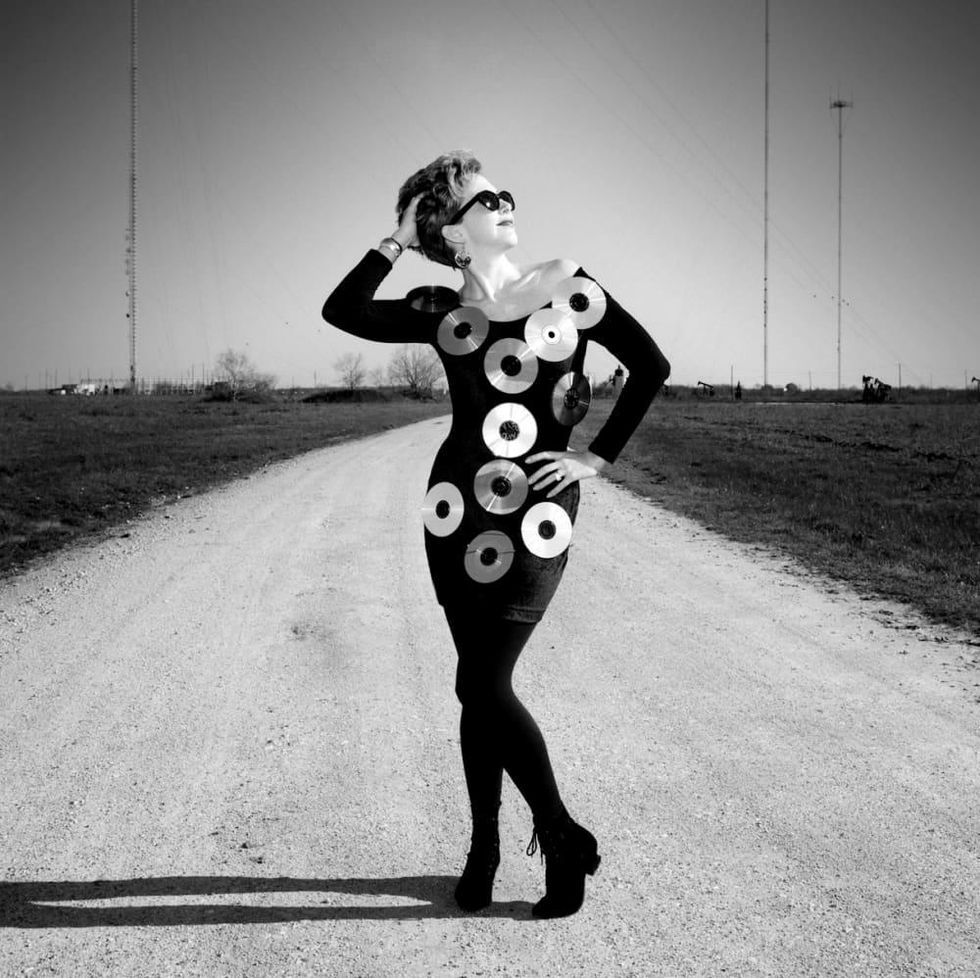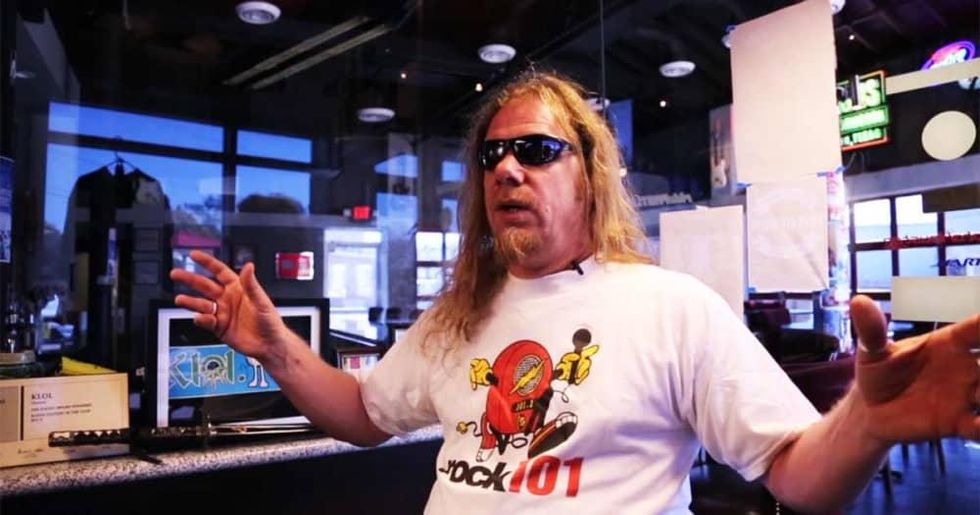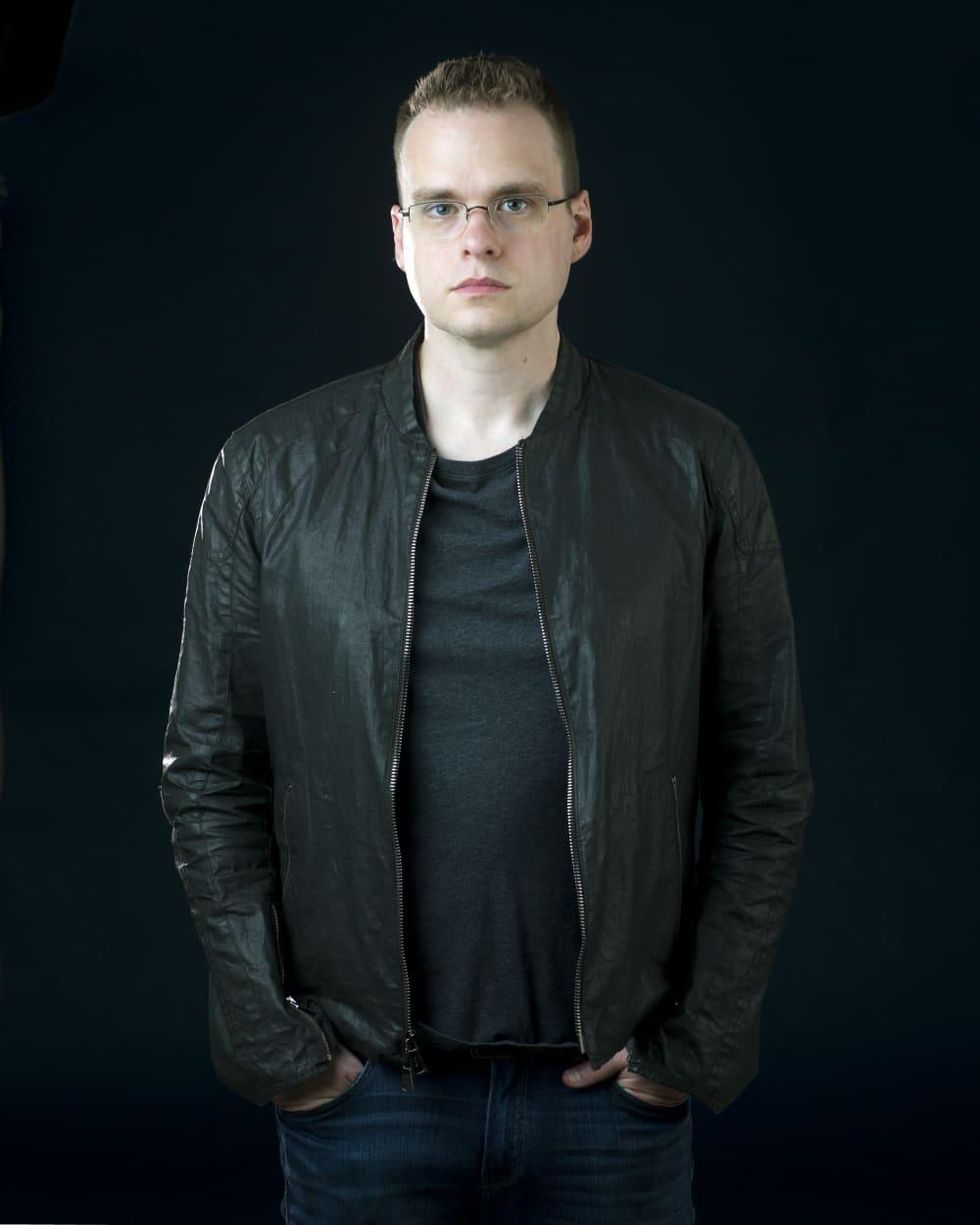the glory days of KLOL
New film relives the glory days of Houston's legendary Rock 101 KLOL
I remember calling a friend and saying, “You’re not going to like this: KLOL has switched formats. It’s a Spanish pop station now.”
He said, “They can’t do that! KLOL is my station!”
Really? I asked, “When was the last time you actually listened to KLOL?”
He said, “Let me think, wow, it’s probably been a few years.”
That’s a big reason that KLOL-FM, one of Houston’s iconic radio stations, rocked ‘n’ rolled for the last time one night in November 2004. The next morning, the station was playing Latin pop music, with a new brand, Mega 101, and tagline, “Latino and Proud.”
The end came swiftly for KLOL, without warning to its listeners. That’s radio, the way it’s done. One day, loyal KLOL listeners were rocking out to Sammy Hagar, 24 hours later they were changing buttons on their car radio.
Web designer and media blogger Mike McGuff is nearing completion of a documentary about the rise, crazy popularity, and fall of KLOL. Former station manager Pat Fant and air personality Dayna Steele are executive producers.
McGuff will enter the documentary in film festivals, then release it to theaters in 2020.
Here’s my KLOL story. In 1989, wild and wooly talk show host Morton Downey Jr. came to Houston for a TV convention and did one of his shows here. He invited KLOL’s morning shock jocks Mark Stevens and Jim Pruett — and me — on the show to discuss the state of radio and how it was breaking all the rules of public decency, or some nonsense like that. I said yes to going on because it’s one of those things that’s fun to talk about later. In this case, as it turned out, much later.
I was seated between Stevens and Pruett, supposedly as the voice of reason. Downey went on his usual rant about how KLOL and other stations around the country were pandering to perverts and "pablum-puking liberals," yadda yadda.
At one point, Downey told Stevens and Pruett to give an example of their shenanigans. They went into the audience and pretty much delivered an outrageous, sex-charged performance laced with embarrassing questions for women in the audience. Mock horrified, Downey turned to me and asked, “Do you approve of that?”
I wanted to answer, “Please may I go home, I shouldn’t be here.” But I said something like, “These guys are very popular, obviously there is an audience for that kind of entertainment, it’s targeted to adults, and there is a First Amendment that protects their right to do that show. It’s not my thing, but I do approve of that.” Downey hated my answer.
Now, here are 10 Questions for McGuff about his KLOL documentary.
CultureMap: There are 10,000 radio stations in America. What was so special about KLOL?
Mike McGuff: KLOL was one of the top rock radio stations in the country. It won four Billboard Magazine Radio Awards in 1990 including major market rock station of the year. While other rock stations came and went, KLOL managed to stay on the air for 34 years. Bottom line, it was a very creative environment, took a lot of chances, hired great people and let them do their thing.
CM: What was your involvement with the station?
MM: My involvement with the station was simply growing up with it and being a fan. In the pre-Internet era, KLOL was the only way rock fans could be exposed to new music and pop culture happenings that would appeal to that audience.
CM: Could something like KLOL happen today?
MM: I don't believe KLOL could happen today. There is too much competition for our attention and way more media options available. Everything is becoming more personalized thanks to Google, Facebook, and streaming services like Netflix. It's harder for one thing to have as much cultural impact.
CM: What is your standout memory — one moment or, in KLOL’s case, incident?
MM: One of my favorite spots of the film happened in 1974, when then-disc jockey Levi Booker didn't believe George Harrison was calling KLOL while in town to play Hofheinz Pavilion. The next thing, Harrison was knocking on the station's door. Harrison came in and did a long interview with Booker that has become a famous bootleg traded by Beatles fans.
CM: The public's attention span today is fleeting — do you think people still care about KLOL?
MM: A lot of people still care about KLOL because it is nostalgic and transports them back to their youth. There is a Facebook Group with more than 2,000 members that still talk about the station daily plus an online KLOL tribute station.
CM: How time-consuming and difficult was doing this documentary?
MM: This documentary will probably go down as one of the hardest things I've ever done in my life. I would never advise a first-time filmmaker to do what I did and document something that lasted 34 years, has hundreds of people associated with it, and is still very important to people. I spent years researching, trying to get materials related to the station and convince people to sit down with me for an interview. That took the most time.
CM: Give me the Monday-Friday lineup during the station's peak years of popularity, and one sentence where they are today.
MM: Former KLOL production director Doug Harris says the top lineup would have been in the late 1980s, with Stevens and Pruett in the morning, Dayna Steele on middays, Moby in the afternoon, and Outlaw Radio with Grego at night. Both Stevens and Pruett are dead, Dayna Steele is a motivational speaker, Moby just retired from radio, and Grego is still on Houston radio at 95.7 The Spot.
CM: How long did KLOL flourish as an important station?
MM: KLOL was an important station for at least three decades starting in the '70s and ending in the late '90s. By the early 2000s, it had been swapped by so many radio companies in a short amount of time causing it to lose its mojo.
CM: How did you react when it was announced that KLOL was changing formats and dropping the call letters?
MM: When I heard rumors the station was flipping formats, I was more angry that the powers that be let the station get to the point that the format should be changed. In the last years, as a fan, I thought it was a down period for the station, but it could always come back. Like many said in the documentary, it was like watching an old friend die and be put out of their misery.
CM: Do you feel like you are the steward of KLOL's legacy?
MM: No, I am not the steward of KLOL's legacy. That duty has been taken up by the person who signed on the station, Pat Fant, and the others who worked there for many years. I am just telling their story.



